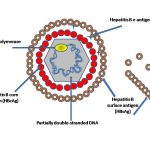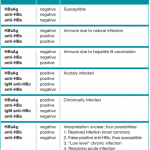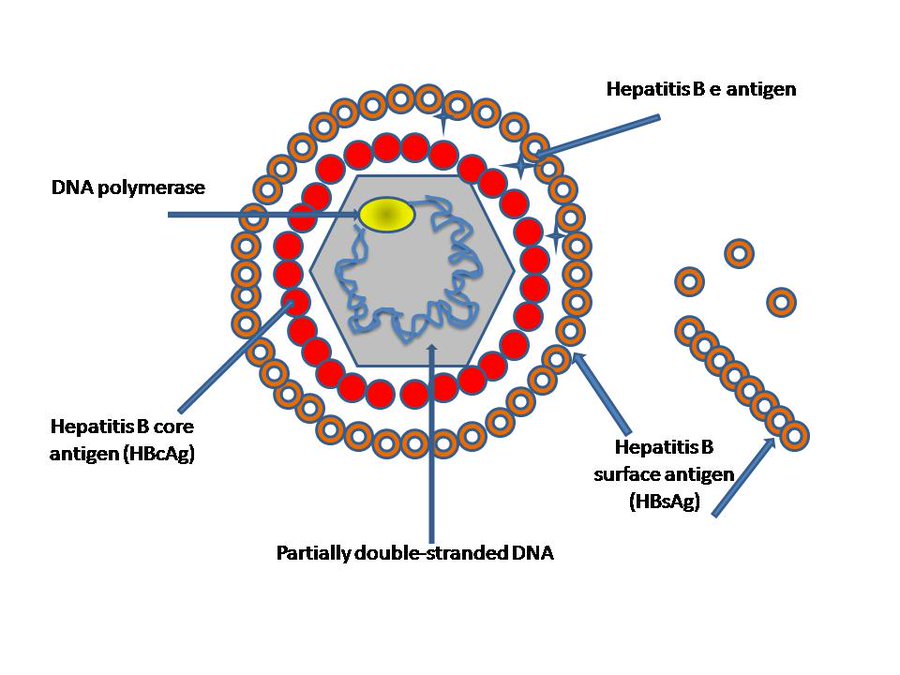MENACE OF HEPATITIS B VIRUS INFECTION AMONG HEALTHCARE WORKERS IN NIGERIA… A call for concern
According to the World Health Organisation, 257 million people are living with chronic HBV infection worldwide as at 2015. Africa and pacific regions accounted for 68% of those infected.

Several studies have shown that the burden of HBV is high in Nigeria. However, there has been no national study on prevalence of HBV in Nigeria by either @ncdcgov or @fmohnigeria
In 2006, I supposedly got vaccinated against HBV because as a medical laboratory science (MLS) student, I must be vaccinated before using cadavers (preserved dead bodies) for anatomy practical. I diligently did and ensure I completed my three doses of vaccination.
With that in mind, I believed I was 100% immune to HBV through vaccination. In 2011 whilst undergoing my mandatory one-year internship at a State Hospital in one of the states in Southwest Nigeria, the laboratory conducted an hospital wide surveillance study on the prevalence of MRSA and HBV among healthcare workers in the hospital. I was surprised to see the number of healthcare workers with HBV infection, but unknowing to them. The infection is more common among the porters compared to other healthcare workers, simply because they are the ones who do the hospital “dirty jobs”. Few years after, I was informed that one of the Medical Doctor who tested positive for HBV infection died after a brief illness at his prime age. I could not ascertain cause of death but …
I believe complications from HBV infection cannot be ruled out. This is one of the numerous deaths happening amongst healthcare workers in Nigeria as a result of HBV infection, but this is going on silently without an alarm from anyone, organization or government.
In 2013, I worked with an NGO known as Global Hepatitis Prevention Initiative (GHI) where I was the Ogun State Focal Person. During my time as the state focal person, NYSC corp members were voluntarily tested for HBV and HCV through the philanthropic gesture of the NGO, I observed high rate of HBV infection among youths. Sad thing is that over 80% of these youths do not know anything about Hepatitis. They believe if it is not HIV, it is not deadly. What a sorry case for our teeming youth who are ignorant of the fact that HBV is deadlier than HIV.
Before I relocated from Nigeria, I worked in three different government hospitals and none of them deemed it fit to conduct HBV assay as part of pre-employment occupational health test for me. This is one of the reason why the HBV rate is skyrocketing among healthcare workers In the United Kingdom, I interned and worked in a research centre and hospital respectively and before I could get a nod to commence with them, my HBV infection status was ascertained as part of the occupational health screening, and all expenses covered by my employers.
Fortunately, it was confirmed that I have immunity against HBV infection on these different occasions.
Again, I was required to test for HBV infection status with my employer in Canada after producing the result I got from my UK employer, which shows that I am immune to HBV infection. I was reluctant to do it again, but it is a requirement I must fulfill as an employee.
My Hepatitis B surface Antigen (HBsAg), surface antibody (anti-HBs) and Core Antibody (Anti-HBc) were requested to be assayed. The HBsAg came back to be negative while the anti-HBs and anti-HBc came back positive. What does this mean?
It means that I developed immunity to HBV infection NATURALLY. How did I manage to develop immunity to HBV infection naturally when I never had exposure to it via sex, needle stick or blood transfusion? This got me thinking of the following:
1. Does it mean that the vaccine I took in 2006 was not effective or I got an expired vaccine? If I got immune to HBV infection through vaccination, the anti-HBc should be negative. I was vaccinated in LAUTECH back then. The question is now, why didn’t I get immune through vaccination instead of natural immunity?
This is according to the @CDCgov,
Division of Viral Hepatitis Interpretation of Hepatitis B Serologic Test results

2. If I got a defective HBV vaccine, does it mean I got exposed to the virus when I was using the cadavers for anatomy practical or during my laboratory posting as an MLS student or whilst working as a Medical Laboratory Scientist in Nigeria?
3. How many of my colleagues would have been infected and become HBV carrier unknowingly, if their system could not clear the virus upon exposure?
4. Who is responsible for monitoring incidence of HBV infection in Nigeria among healthcare workers and the populace?
This is a call on all healthcare workers, employers, hospital administrators and the Nigeria government to make HBV vaccine available to everyone because HBV is killing our citizens without alarm from anyone.
I am happy that I have the immunity against HBV infection, but I am just one out millions of people who do not have same immunity.
READ ALSO: The where, how, when, side effects and cost of hepatitis b vaccination in Nigeria
It is high time we adopted compulsory occupational health testing in all our healthcare facilities before anyone is offered employment to stem the tide of HBV infection in Nigeria. Remember, Hepatitis B virus is deadlier than HIV/AIDS.























